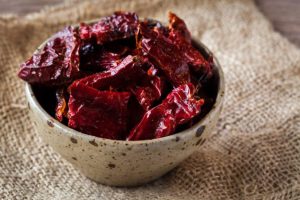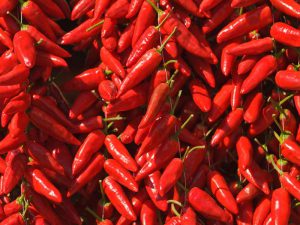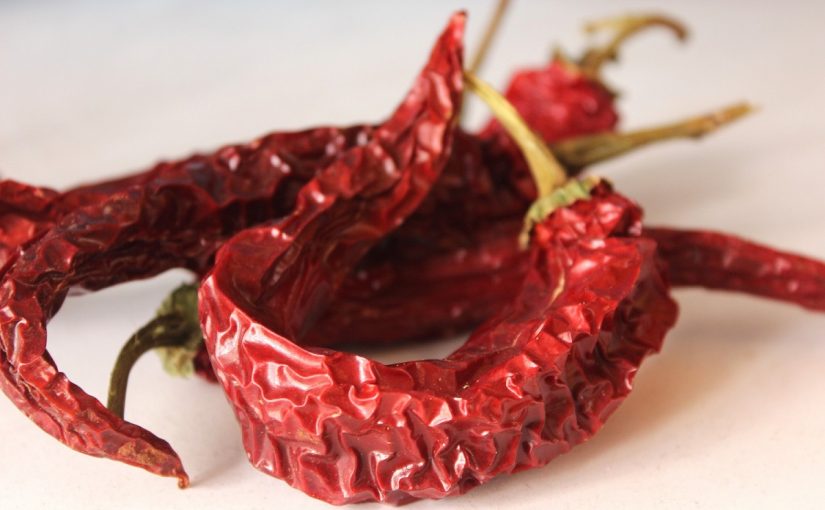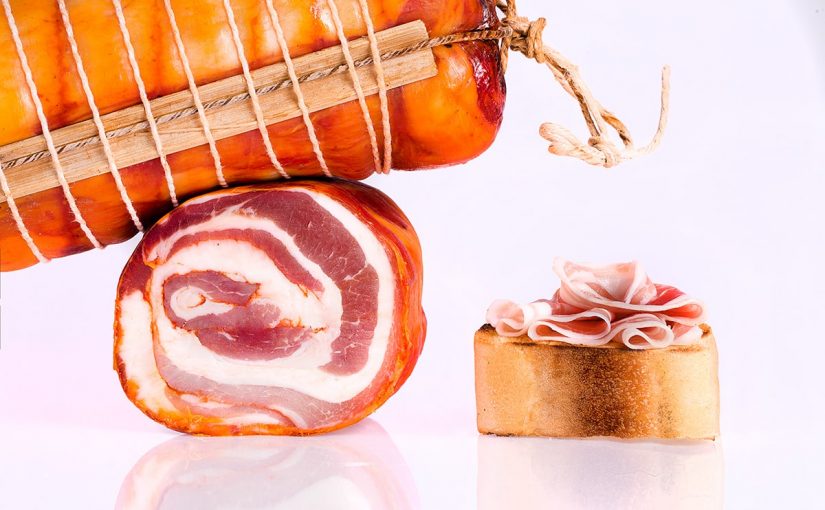9.5.2018
It is a must of Calabrian and Mediterranean cuisine: “peperoni cruschi” (crisp and dried peppers). For peperoni cruschi, you need sun-dried sweet Calabrian peppers from the province of Cosenza.
Such Peperoni are ideal, but any dried sweet Italian pepper will work and will be perfect for various dishes throughout the winter months.
If you have bought peperoni cruschi, then they need to be eaten as soon as they are prepared, not months later out of a cellophane bag. Otherwise, you can plan to dry personally some sweet Italian peppers, next summer, or buy the whole dried peppers, then making easy dish yourself.
To make peperoni cruschi, first remove the seeds and stems from the dried peppers and cut into pieces. Place the cut peppers with some extra virgin olive oil in a pan. Garnish them with some olives and place the pan over medium heat.
TYPICAL CELEBRATIONS WHEN THEY ARE EATEN
December is a month of many celebrations, both religious and secular, when such peppers are eaten.
Often each celebration is accompanied by the serving of a particular food or dish. For example, December 8 is the feast of the Immaculate Conception in the Roman Catholic Church, and it marks the beginning of the Christmas holiday season and its wonderful dishes in Calabria.
Other typical occasion is Christmas. During the Christmas festivities this recipe, handed down for generations and without distortions dictated by culinary trends, is a wonderful memory of the past. During such time it is worth waiting all year for the salted cod, served with the crunchy “cruschi” peppers in Calabria and fried with extra virgin olive oil.

THE TASTE
Peperoni cruschi are a specialty of Calabrian and, also, of Lucan cuisine.
The peppers cruschi have a good taste, are crisp and lend themselves to many recipes. They have a distinctive flavor, they remain crisp even after cooking and are so engaging that one pulls the other.
Usually, they are fried simply in olive oil, served with boiled potatoes, cooked with cod or are excellent for flavoring sautéed vegetables.
Together with the cruschi peppers you can taste eggs and sausage.
SOME FEATURES
The pepper is planted between February and March, and then harvested at the beginning of August when the berries are colored with an intense purple red. Finally, they are hung on windows and balconies, intertwined together with needle and thread from the petiole are left to dry in the sun. They represent a typical preserve for the winter. In summer, a particular quality of peppers become red because when they are ripe, they are threaded with a needle and thread like a necklace. These necklaces are exposed to the sun to allow the drying of the peppers.

The peppers are divided into three morphological types: (i) “Appuntito”, (ii) Tronco “e (iii) ” Uncino “. Red-purple, with a conical shape and small size, it resembles a chilli pepper but has a sweet taste; the pulp, thin and poor in water, makes the pepper excellent for drying.
Calabrian pepper “cruschi” are recognizable by its size, smaller, and for its shape, pointed and hooked, is also called ‘zafaran’, probably because the color of dried peppers reduced to dust reminds that of saffron.
For this reason it is also said that here, the pepper and chilli have taken the place of saffron because with little flavor and color food.
The nutritive properties are the following: they are rich in Vitamin A, E, K and PP, further the peppers contain a high percentage of vitamin C, 30% more than other types.
TRADITIONS IN OTHER REGIONS
Some particular peppers are from Calabria, other from Basilicata (so called Lucania).
In both cases such precious fruits come from a careful cultivation; seeds are collected from year to year by farmers, and they are difficult to find in supermarkets,.
In Basilicata are used for the preparation of typical local dishes, like baccalà, polenta, tomato salads and crushed olives, but also for many preserved foods, such as meats, and for the preservation of cheeses and fish, such as salted anchovies.
“Senise Cruschi” peppers in Basilicata have obtained a local protection, called “IGP”, but in Calabria they are cultivated with the same dedication. The peppers are harvested at the end of summer, already ripe and with a typical reddish color.
In Calabria these peppers are used for the preparation of traditional sausages, so called “sopressate” (typical salami), “capocollo” (other type of salami), and also for the preservation of cheese that is greased after aging with a mixture of vinegar, oil and ground red pepper, or bluefish.


